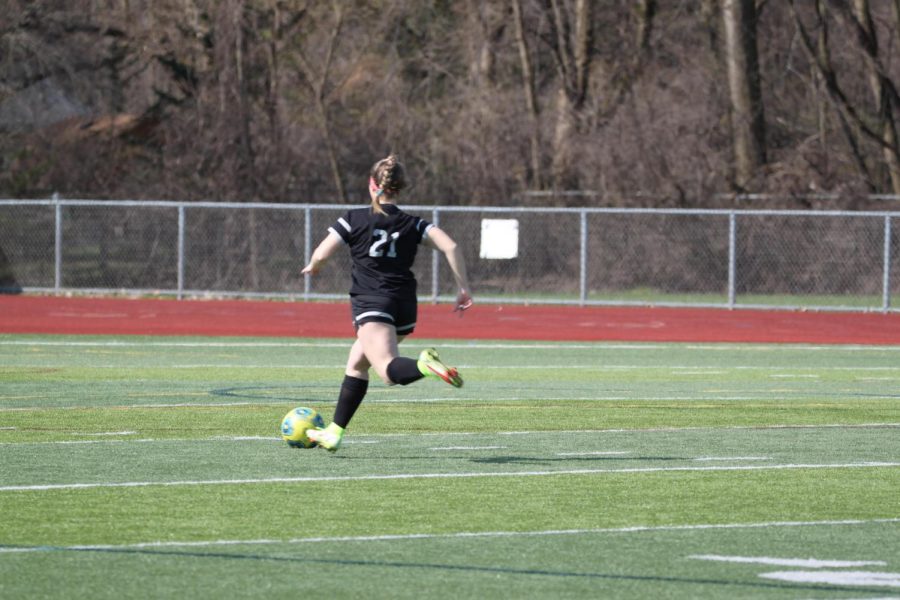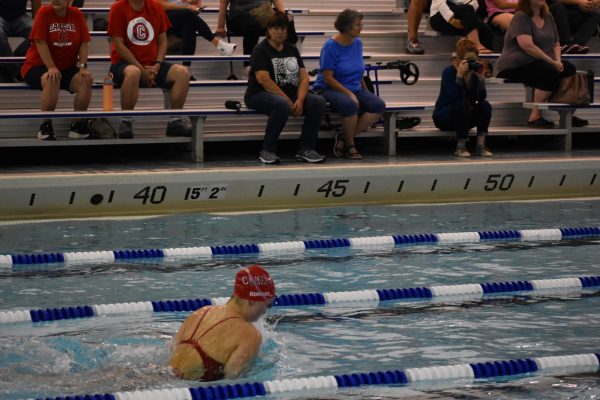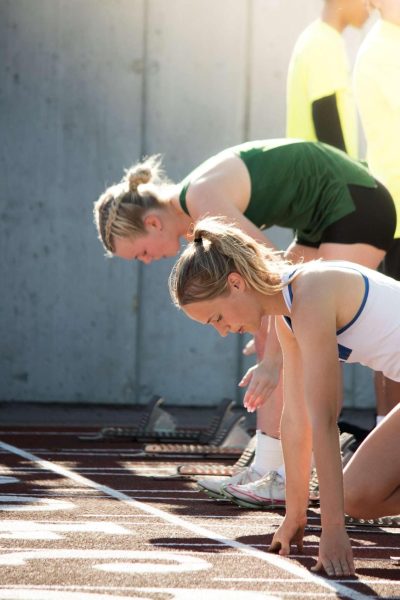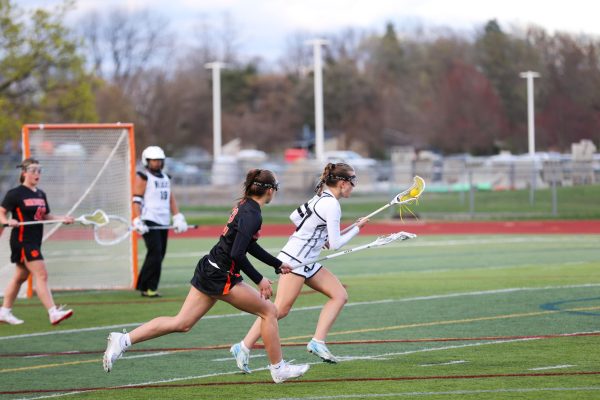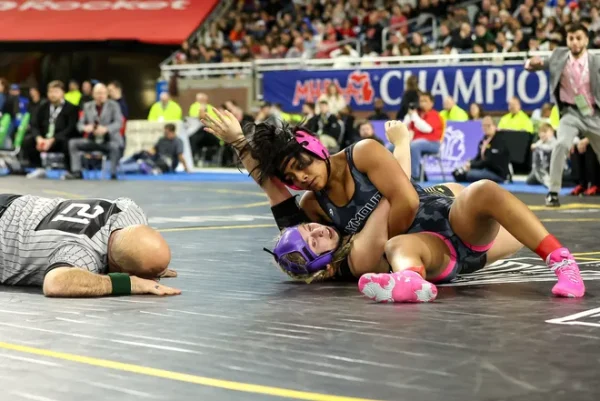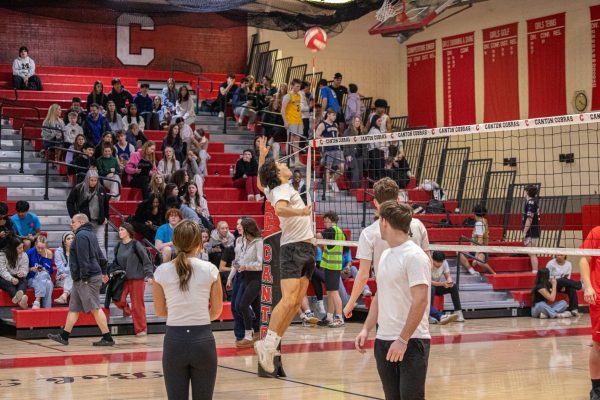Knee injury plagues P-CEP soccer player
Ashleigh Vernier, Plymouth junior, dribbles down the pitch during her game at Plymouth High School. April 13, 2022.
Ashleigh Vernier, now a Plymouth junior, made her way up the field from the midfield line. As she was about to score on the Ann Arbor Crush goal back on September 18, 2020, Vernier swung her leg in a kick, a defender came in front of her and kicked the ball at the same time.
This is one of the most common ways for a girl to tear their knee ligaments.
Medial collateral ligament injuries, or MCL injuries, happen when a person puts pressure on the outer part of the knee. The pressure, which can cause tears — partial or complete — of the ligament, can be caused by hitting a ball at the same time with another person, or pushing the femur — the upper leg bone — out or inward.
Vernier, a 16-year-old Class of 2024 Plymouth soccer player who also plays for the Detroit City Football Club (DCFC), has suffered similar injuries multiple times over and has suffered two major strains to her MCL.
Her knee problems started from a young age.
“When I was younger, I had some kind of knee problem,” Vernier said. “I never really figured out what it was, but I do know it had to do with the patella [the bone above the knee].”
Vernier has been playing soccer since the third grade, the same year she got her first injury during the Canton Cup, a tournament held annually over Memorial Day weekend.
“I couldn’t walk for the next two days [after the first injury], but afterward I was fine,” Vernier said.
Vernier’s second injury occurred in September 2020, when she and another player attempted to kick the ball at the same time, causing Vernier to strain her MCL.
”Before I kicked the ball, [my leg] felt normal,” said Vernier. “As my foot hit the ball, I felt a sharp pain and a sting in my knee. After, it started to feel uncomfortable. It felt weird to walk or just stand.”
Her third major injury happened a year later in October 2021, and was again caused by kicking the ball at the same time as another player.
In addition to major injuries, Vernier has also had other minor incidents, with the most recent occurring in November 2022.
”Both girls just crashed with each other and got their feet intertwined,” said Peggy Jones, Vernier’s grandmother who was present on November 6.
Most MCL and ACL injuries happen with non-contact, meaning that the players didn’t touch.
“[Most sports-related injuries are] non-contact injuries like stopping too quickly from sprinting, or, turning in an unnatural way could also cause the MCL or ACL injury,” said Allie McDonnell, the athletic trainer at Plymouth High School. “[Most contact cases in girls soccer involve] hitting the ball at the same time.”
There are other factors on why these injuries happen so often.
“This study has been done for the last 30 years,” said Chechaka Johnson, the athletic administrator at Plymouth High School. “It’s the body type of women, with childbearing hips and how their bodies are, and it puts more pressure on the joints and knee joints. [Women are] more prone to knee injuries than the males are based just on anatomy.”
The recovery time for most teens with a knee injury is typically between six to nine months, depending on the severity of the injury. Vernier’s recovery time was about three months for the first 2020 knee injury, and two months for the 2021 knee injury.
“In the late ‘80s when the injuries became more frequent the recovery time was longer, around nine to eight months, but as years passed they came up with better rehab and technology,” said Johnson. “Now, with all the right equipment and training, you can get back within five to eight months.”
Going to rehab and coming back to the soccer field before being fully healed can put a player at a higher risk of a recurring injury.
“Usually if you come back before nine months for girls,” said McDonnell, “you are at a higher risk.”
Vernier has been in rehab on four different occasions over the past three years.
“For the first two times, they had me do more mobility and strength training than anything, but you ease into it,” said Vernier.
Even a full year after her last major injury, Vernier is still having problems with her knees and continues to attend rehab sessions once in a while. Despite this, she remains committed to playing sports.
“My doctor has told me if I get one more major knee injury, I probably won’t be able to play anymore and [will] have to get a knee replacement,” said Vernier. “Until that day comes, I’m gonna keep playing as much as I can.”
Your donation will support the student journalists of Salem High School - MI. Your contribution will allow us to purchase equipment and cover our annual website hosting costs.


